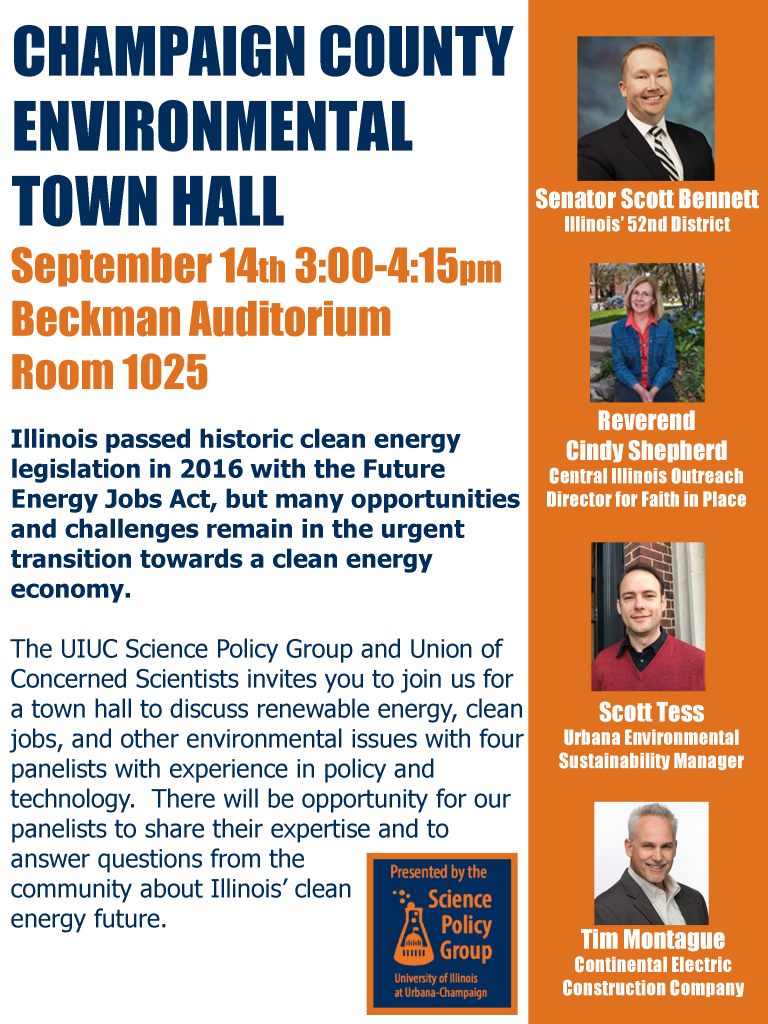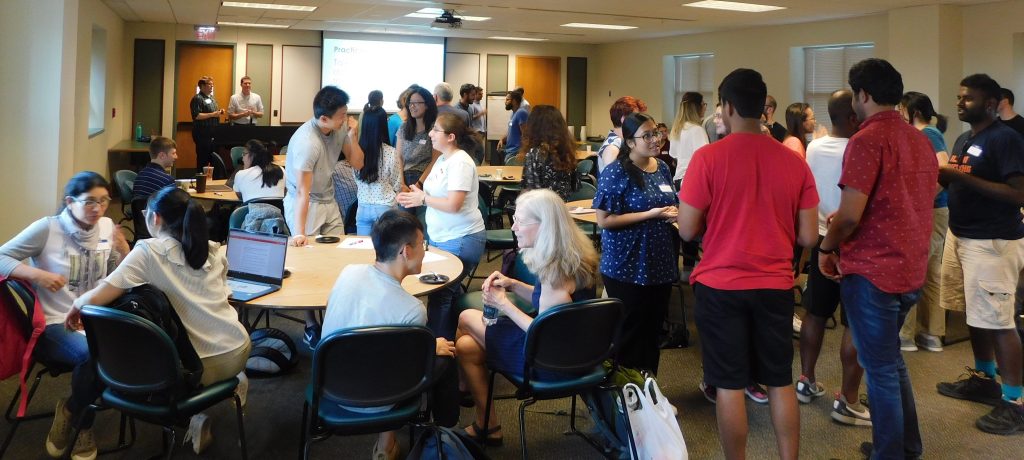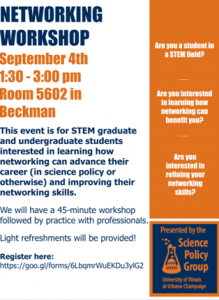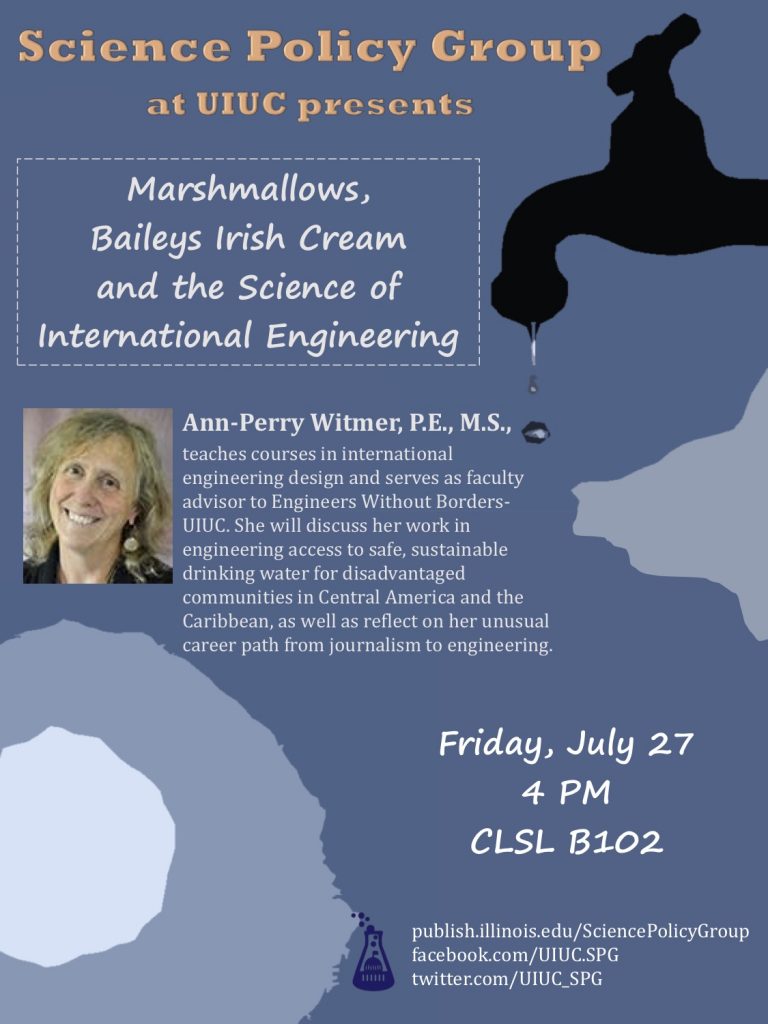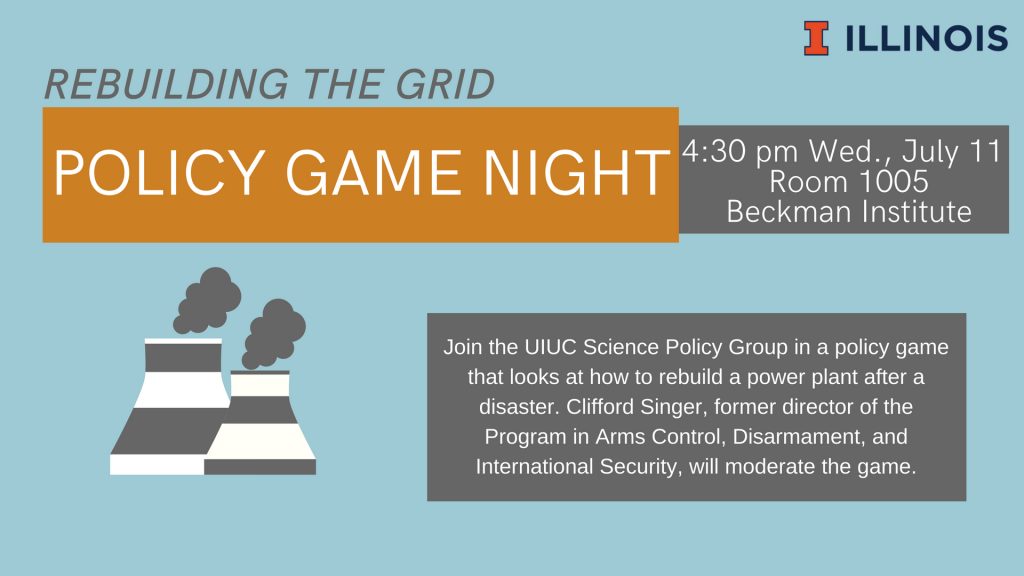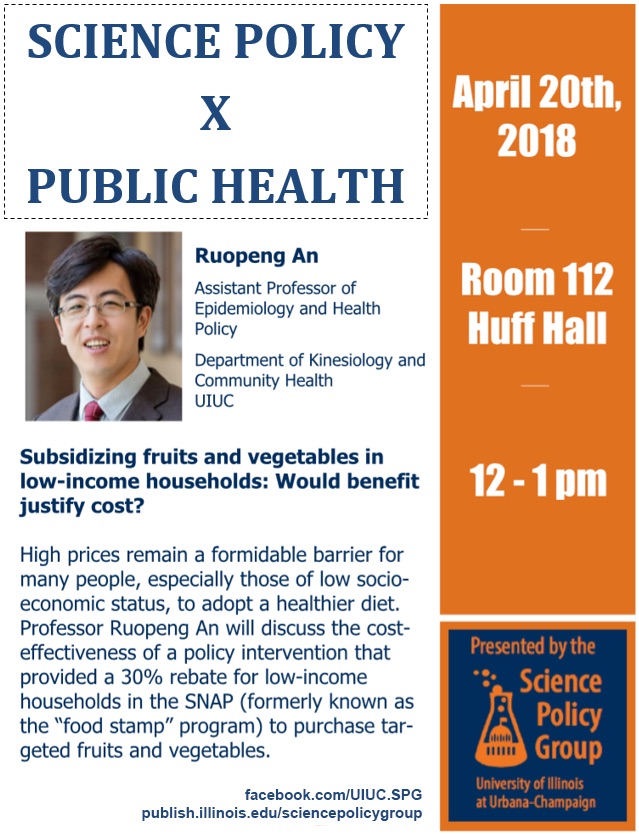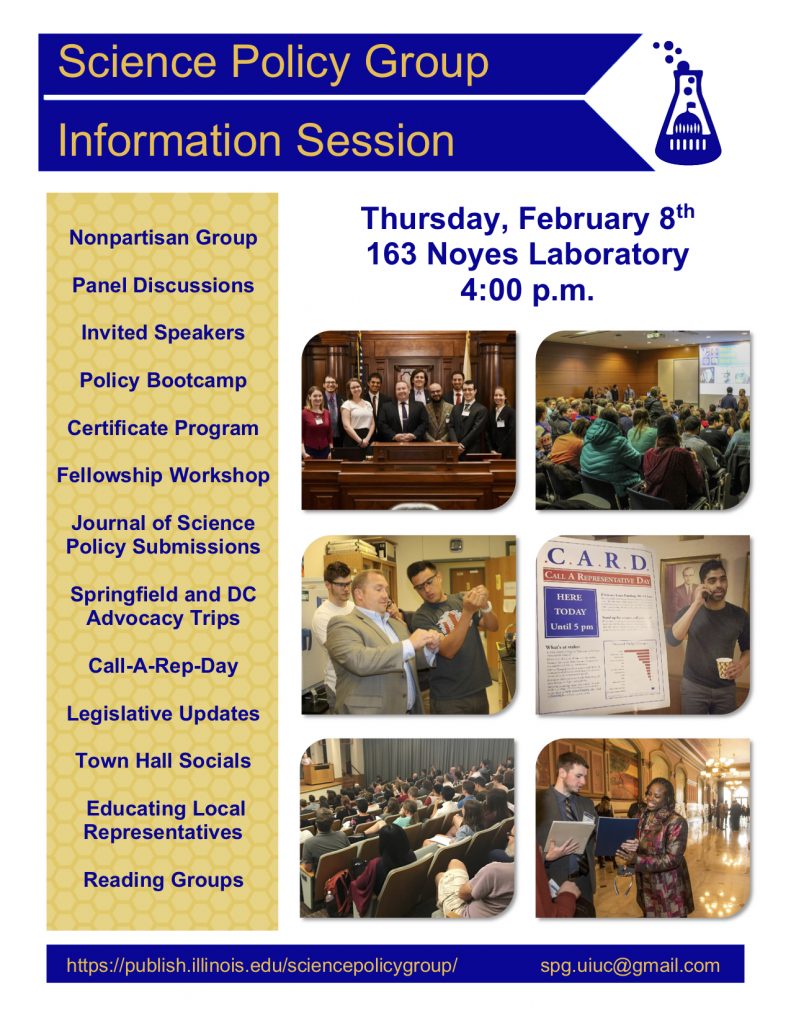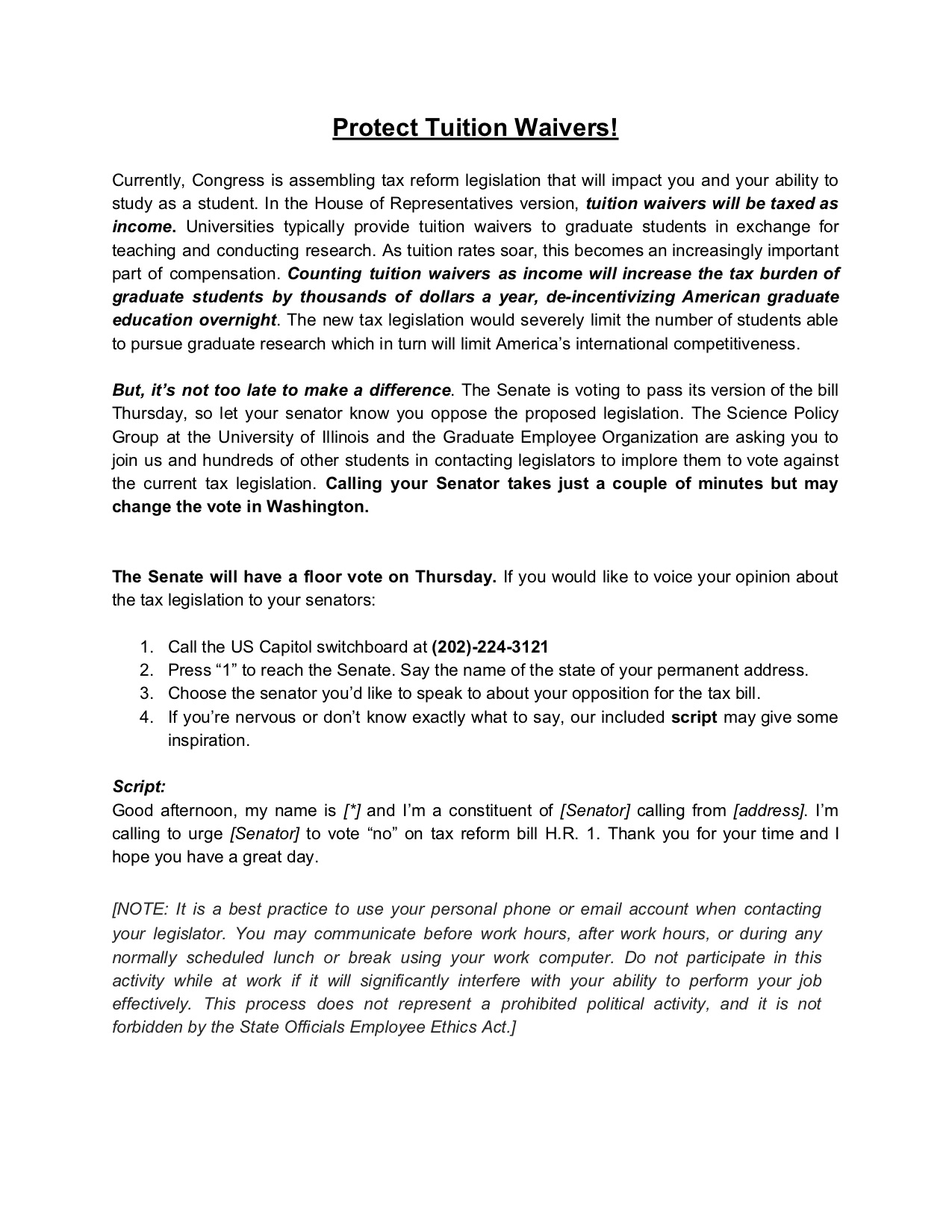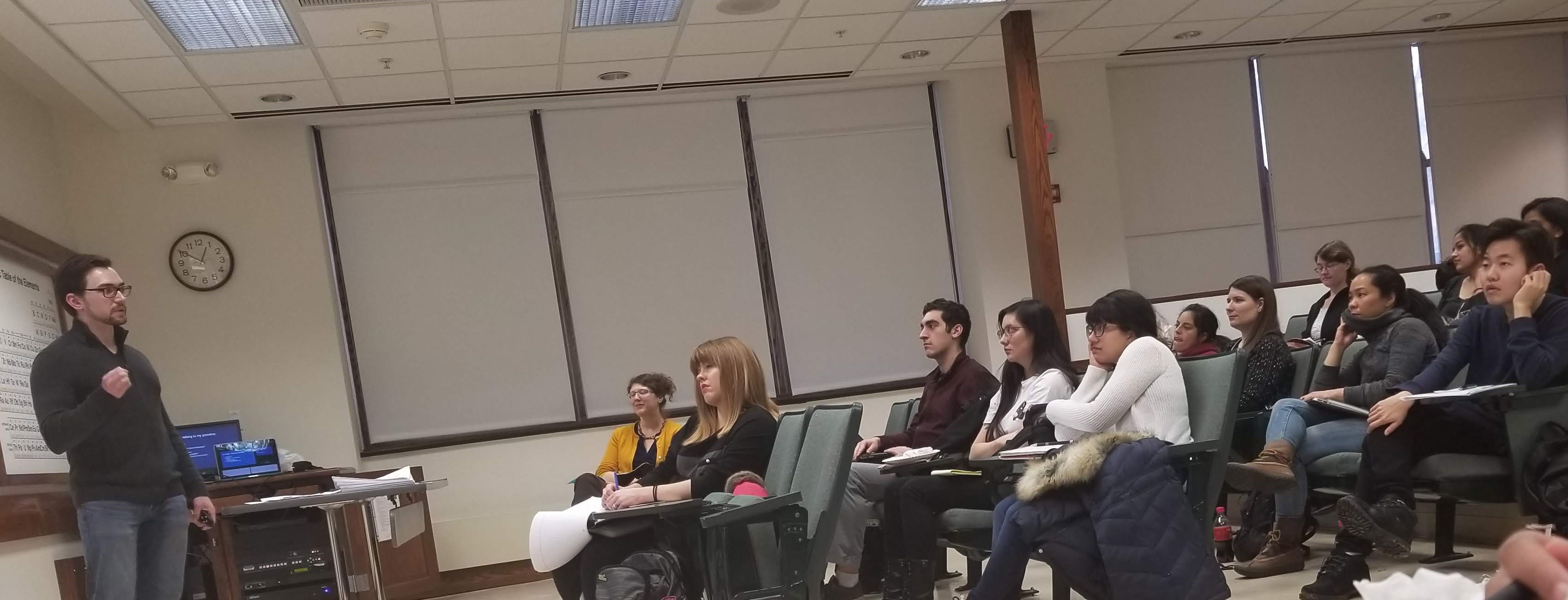
Workshop participants look on as Gus Greenwood reviews some tips and tricks for communicating your work to the public.
“Know your audience” –this was one of the key points addressed on Wednesday, February 6th at the first Science Policy Group Writing Workshop. In conjunction with the Writers Workshop on campus, the Science Policy Group Professional Development Committee held a 90-minute workshop on communicating science to non-scientists. The guest speakers included Ananya Sen, an experienced science communicator and doctoral candidate in MCB, and Carolyn Wisniewski, Director of the Writers Workshop, along with her co-presenter Gus Greenwood, an MS student in Environmental Engineering.
After a brief introduction to the Science Policy Group, Ananya kicked things off right away by having the 26 attendees participate in a stimulating mental exercise. She had them write down how they would explain their research to three different audiences: 1) An expert in their field, 2) A 5-year old, and 3) A peer not in your field. The exercise not only put their research in perspective, but also challenged them to remove the jargon. At the conclusion of the exercise, Ananya answered several audience questions about her journey, how she got started, and what she blogs about. Overall, the attendees felt that the activity and her personal experiences were a valuable part of the workshop.
For the remaining hour, Gus presented helpful pointers in communicating science to the public, such as knowing your audience and getting to the bottom line right away. He illustrated his point by giving an example of talking to his grandmother about his research –how could he pare down and use metaphors and similes? Gus then transitioned into an example of a form of science communication, a policy memo. He explained the basic structures of a policy memo and then introduced the upcoming National Science Policy Network memo writing competition. Many of the attendees expressed interest in the competition and with a March 1st deadline, the timing of the workshop was perfect.
As a final activity, Gus and Carolyn passed out examples of different samples for analysis, including a blog post from a well-known physicist, a Washington Post opinion article, and a few policy memos. After skimming through them and coming back as a group, they pointed out the differences in writing styles, target audience, and technical language used. There was productive conversation and discussion regarding the written examples and collectively, the group agreed that the writers were able to get their point across.
At the conclusion of the workshop, participants were satisfied overall with the workshop content and activities. They learned some valuable tips on communicating science to the general public and information on the upcoming memo writing competition. In addition, Carolyn and Gus provided everyone with additional resources available to them through the Writers Workshop. From Biochemistry to Food Science and Human Nutrition to Economics, the departments represented by the attendees were diverse but still united in the goal to communicate science to the public effectively. This workshop was a great introduction and springboard for future partnerships with the Writers Workshop and science communicators alike to help people from various science backgrounds communicate science to the public.
Event coordination and write up by Alisa King.

